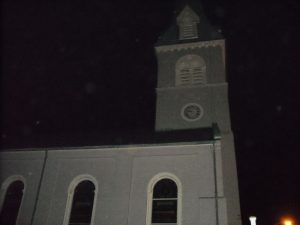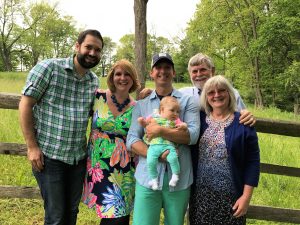Luke 5:4-11
When they did this, they caught a great number of fish, and their nets began to tear. So they signaled to their partners in the other boat to come and help them; they came and filled both boats so full that they began to sink (5:6-7 CSB).
The fishermen had heard Jesus teach (5:1-3). Next, it was time to see him act. As you compare the other Gospels, you see that this was not the first time these men were acquainted with Jesus. Neither was it the first time they had heard him teach and seen him do miraculous signs. They had had personal conversations with Jesus. They knew him, but now they were to know him more. Relationships grow gradually. Jesus knew this was the time to call them to the next level.
The Lord has all things under his control. In him we were also chosen, having been predestined according to the plan of him who works out everything in conformity with the purpose of his will (Ephesians 1:11 NIV). Think for a moment. Why did Peter and his friends have a frustrating night of catching no fish (5:5a)? It was because the Lord kept the fish away from their nets. Jesus set up the events for this revelation of his power to them. In order to follow Jesus as his “Sent Ones” (Apostles), these men needed to learn that they could depend fully on the Lord for all their needs. They also needed to learn that they were not in charge of their lives. They had caught many fish on Lake Galilee previously, but not the night before Jesus taught from Peter’s boat. As we continue to live through the current pandemic, we ought to learn these lessons as well. I am not in charge; I can depend on the Lord.
Peter, after working all night, had heard Jesus teach the word of God. Next, Jesus gave a direct message to Peter. When he had finished speaking, he said to Simon, “Put out into deep water and let down your nets for a catch” (5:4 CSB). Jesus ordered Peter to act contrary to his own professional wisdom. The longtime fisherman knew that night was the best time to fish. He also knew that he had just experienced a completely unproductive fishing trip. He was tired and had already put his tools (his nets) away (5:2). It would have been easy to refuse. But Peter did not. We need many with his attitude today. Human “wisdom” has ruined the western church during the last fifty years. Entertainment and “attractional” methods have not produced true conversions or godliness. It is time during this pandemic to abandon what human wisdom has prescribed and to return to what the Lord Jesus Christ commands.
What happened next is a miraculous sign. In other words, Jesus continued to teach them, not by words, but by a supernatural act. Let’s focus there for a moment. The Bible records many supernatural acts by God. Here, the Son of God performs one. You can always know that a person has departed from the faith when they deny the reality of miracles. Notice that Peter and his friends did not ask for a miraculous sign, though it is all right for people to pray for God to act directly in our world. But the point is that they did not look for or expect what the Lord Jesus did. It was a sovereign act by the Lord, stepping into their world, speaking to them through an action that they would understand was an act of God himself.
Are we ready for God to come and show his almighty power among us, to us, and through us? Peter and his friends needed to know what God can do. Beware of falling into the “Can God Syndrome”! They spoke against God; they said, “Can God really spread a table in the wilderness? True, he struck the rock, and water gushed out, streams flowed abundantly, but can he also give us bread? Can he supply meat for his people?” (Psalm 78:19-20 NIV)
In these dark days, we must walk by faith in the true and living God! Abandon your doubts. Renew your confidence in the God who can!
Grace and peace,
David

 Acts 4:23-31
Acts 4:23-31 Proverbs 14:26-27
Proverbs 14:26-27 Genesis 41:1-36
Genesis 41:1-36